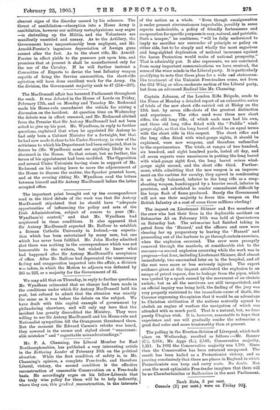The inquest on Lieutenant Skinner and five members of the
crew who lost their lives in the deplorable accident on Submarine AS on February 16th was held at Queenstown on Saturday last. The submarine had finished taking in petrol from the Hazard,' and the officers and crew were clearing her up preparatory to leaving the Hazard' and proceeding out of the harbour to go through certain exercises, when the explosion occurred. The crew were promptly removed through the manhole, at considerable risk to the rescuers—a second explosion occurring while the work was in progress—but four, including Lieutenant Skinner, died almost immediately, two succumbed later on in the hospital, and all the rest were more or less seriously injured. The expert evidence given at the inquest attributed the explosion to an escape of petrol vapour, due to leakage from the pipes, which was ignited by a spark caused by the movement of an electric switch; but as all the survivors are still incapacitated, and an official inquiry was being held, the finding of the jury was very properly restricted to the immediate cause of death, the Coroner expressing the opinion that it would be an advantage to Christian civilisation if the nations mutually agreed to abolish an engine of warfare the navigation of which was attended with so much peril. That is a natural, but, we fear, purely Utopian wish. It is, however, reasonable to hope that experience and use will gradually render the submarine a good deal safer and more trustworthy than at present.






































 Previous page
Previous page